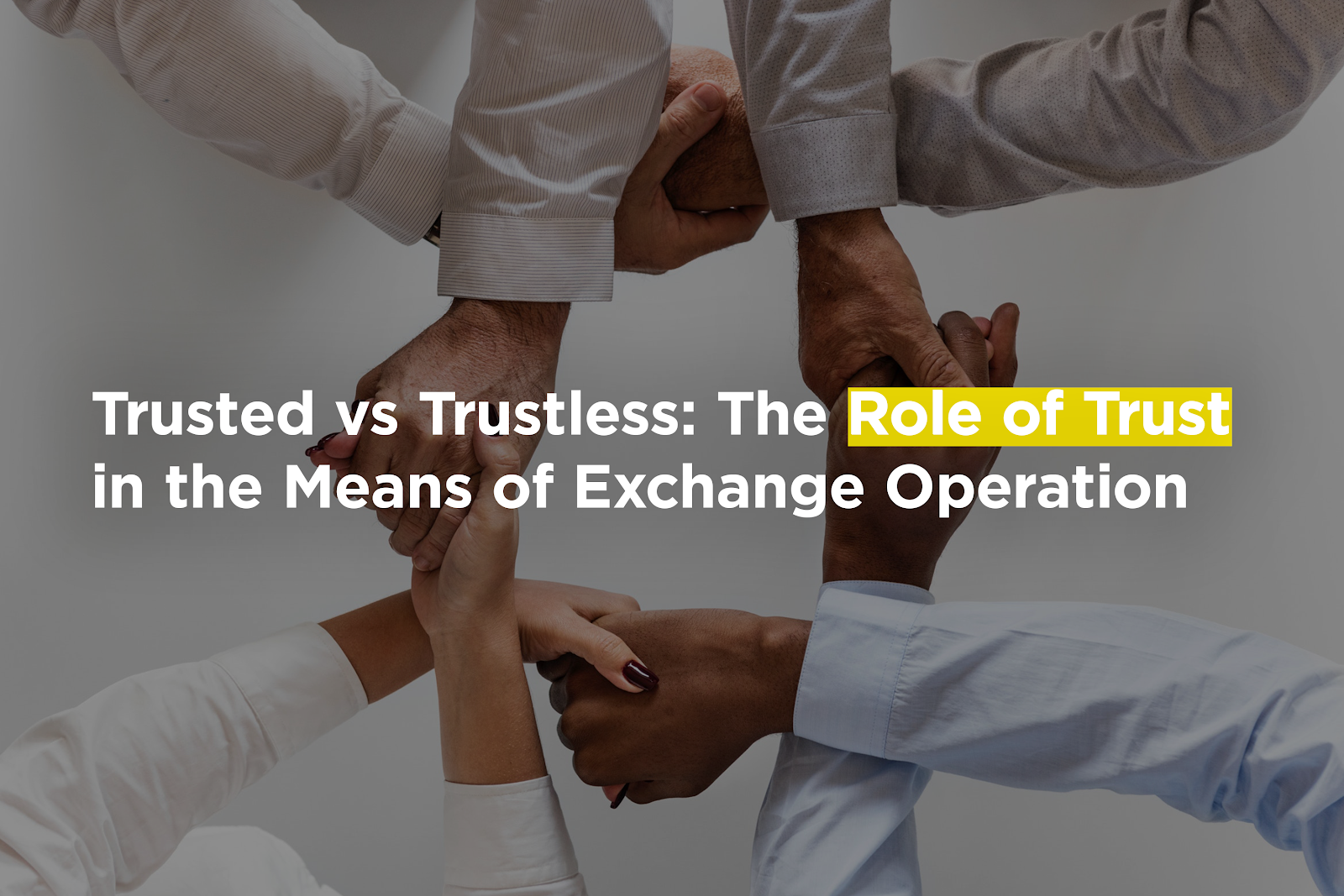TRUSTED VS TRUSTLESS: Defined in CryptoCurrency
Truth in the means of stock-exhange and cryptocurrency operations
‘Trustless’ has become a rallying cry for Bitcoin
evangelists, focusing public attention on the fact that Bitcoin enables
P2P transactions without the participation of a trusted third party
acting as an intermediary.
Before Bitcoin, to use digital
money, we needed a trusted third-party to keep a ledger of who owned how
much. Examples of this trusted third-party are MasterCard, VISA, your
bank or your MNO if you use mobile money. So if Alice sent Bob $100,
this trusted third-party would debit Alice's account and credit Bob's
account - they would update their ledger and we all had to trust this
'trusted' third-party to do the right thing and be good stewards of our
money.
Now with Bitcoin, everyone has a copy of this ledger so we mo longer need to trust a single entity/organisation/third-party because there is no need to trust when you can just verify against this ledger because you have a copy of it. This decentralised ledger is called the Blockchain BTW.
And the other thing is that everyone using is following the same rules we are so we don't even need to trust them because we know that Bitcoin was built to make it impossible to break the rules.
Now with Bitcoin, everyone has a copy of this ledger so we mo longer need to trust a single entity/organisation/third-party because there is no need to trust when you can just verify against this ledger because you have a copy of it. This decentralised ledger is called the Blockchain BTW.
And the other thing is that everyone using is following the same rules we are so we don't even need to trust them because we know that Bitcoin was built to make it impossible to break the rules.
Bitcoin
makes it possible to conduct money transfers without intermediaries.
Intermediaries who could otherwise gain control over funds in a
transaction, censor transactions or act as points of failure.
Does this
give grounds to assert that Bitcoin and other cryptocurrencies are a
form of money that does not require trust? Is it possible to completely
eliminate trust from monetary relations, and is there even a need to?
This article is devoted to the study of the role of trust in monetary
transactions (including cryptocurrencies), and its main conclusion is
that this role is hard to overestimate.
The
article is divided into four sections. First, we analyze the role of
trust in monetary relations, including the role of trust in Bitcoin’s
functioning, and show that trust is necessary for any money. Next, we
proceed to justify the need for credit and credit money, which cannot
exist without trust.


No comments:
Post a Comment